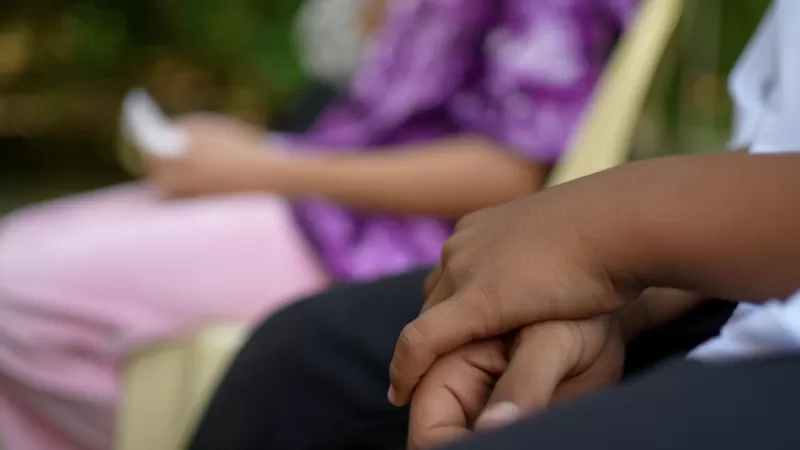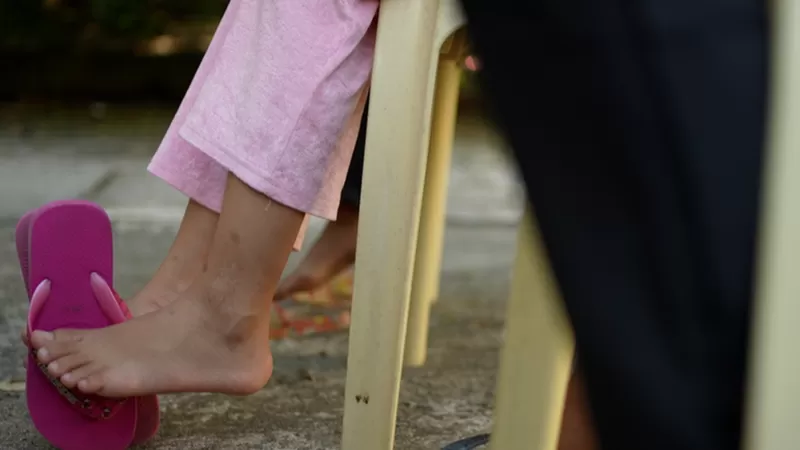Duduspree News, Texas
Seven-year-old Eric giggles, showing off a broad toothless grin, as he talks about space travel in the shade of a garden, surrounded by lush, thick forest, a few hours north of the Philippines’ capital Manila.
Eric dreams of flying a rainbow-coloured rocket to Saturn. He has just lost his baby teeth but he is small for his age. His white, checked shirt hangs off his tiny shoulders.
“What do you cry about during therapy?” his social worker asks him. “I cry about my parents,” he says, looking at the ground.
Fedalyn Marie Baldo has spent months with Eric, his 10-year-old sister Maria and two older brothers to help them understand that theirs is not a normal childhood.
For years, when their neighbourhood was asleep and much of the Western world was awake, all four children were forced to perform live sex shows for paedophiles around the world.
They were raped and repeatedly sexually abused on camera by their mother. Their father, aunt and uncle also took part.
It was the children’s father who eventually reported his wife and her family to the police, allegedly after a dispute. Investigators traced payments to the family from accounts in the UK and Switzerland.Months later, Eric, his brothers and sister ended up at a home run by the charity Preda, which focuses on helping sexually abused children.
That has also been Ms Baldo’s job for 17 years. In that time, images and videos of child sexual abuse have ballooned into a billion-dollar industry in the Philippines, now the world’s largest-known source of such exploitation.
Grinding poverty, high-speed internet access and an ability to accept instructions in English have all kept it going.

Then came the pandemic. More than two years of lockdowns and some of the world’s longest school closures left vulnerable children stuck at home with cash-strapped parents desperate to make money.
A recent study by Unicef and Save the Children estimates that around one in five Filipino children are now at risk of sexual exploitation, putting the grim figure close to two million.
Reported incidents have risen by 280% this year, Unicef special envoy Nikki Prieto-Teodoro says.
Ms Baldo fears that the abuse is becoming “normalised” in the Philippines and may become endemic in some of the country’s poorest neighbourhoods.
President Bongbong Marcos has declared an “all-out war” on child sexual abuse and the industry it has spurred. But so far, it’s a war the Philippines is not winning.
A global war
In Manila, as the clock ticks towards dawn, a team from the National Bureau of Investigation has gathered near a graveyard.
Flashlights are kept low, guns are loaded, cameras are ready to film evidence as the team leader gives a final briefing. They are under pressure to get results.
Amid the tombstones in this densely populated city, a family live among the dead. A 36-year-old mother is on her smartphone in a small wooden hut built against some of the largest monuments in the cemetery.
She thinks she is messaging a paying customer in Australia who is requesting a live sex show involving her three children. In truth, her texts are going to an undercover police officer.
As she switches on the camera, around a dozen officers rush through narrow paths to her door. The only warning is when the stray dogs start to bark.
She offers no resistance as a female officer takes the children to safety and others start to bag evidence: sex toys, smartphones, receipts detailing overseas payments.
As with many of these arrests, this one too is the result of a tip-off from abroad.
The Australian Federal Police told the News Department they caught a man at an airport with a storage device full of explicit child abuse videos. His phone allegedly contained messages between him and a woman in the Philippines requesting money in exchange for the videos.
The operation then took dozens of officers weeks to plan and led to two arrests. One in Manila and the other in Sydney.Australian officials said they had recorded an increase of around 66% in reports of child exploitation in the last year.
They are working alongside teams from the International Justice Mission, the UK National Crime Agency and the National Police of the Netherlands, and officers in the Philippines, to try to find child sex offenders. Once they’ve identified them, they try to track down the source of the material.
But often, the only way the abuse is reported is when the child comes forward. And even then it’s a long road ahead.Several social workers say they have to spend days, even weeks, pushing local police to rescue the children and file charges against the parents.
“Sometimes we get the co-operation of law enforcement authorities, other times the actions of people who are supposed to really protect children are delayed. But we have to work around it,” says Emmanuel Drewery from Preda.






